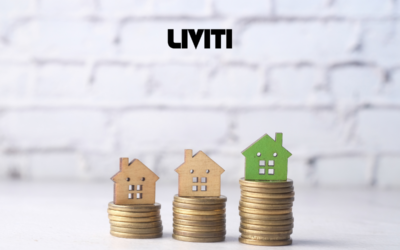In the world of finance, the traditional wisdom has always been to save. Yet, a growing number of savvy investors are challenging this notion.
These seasoned investors argue that saving alone is not the most effective path for wealth building. Instead, they propose a more controversial strategy: leveraging debt for wealth building through property.

The approach is not without its risks, but it has the potential to accelerate asset acquisition and financial growth. It’s about using borrowed money wisely to invest in real estate, a tangible asset that often appreciates over time.
But how does one navigate the complexities of debt leverage? How can you turn a liability into a tool for creating wealth through property?
In this article, we delve into these questions. We explore the concept of leveraging debt for property wealth, its benefits, and its risks.
Whether you’re a seasoned investor or a beginner, this guide will provide you with valuable insights. It’s time to rethink the old adage that saving is the only way to financial prosperity.
The Paradigm Shift: From Saving to Leveraging
According to CEIS Data, over the past two decades, Australian property prices have averaged a 5.4% annual growth rate, with peaks as high as 24.1% in December 2021. In contrast, average savings account interest rates have hovered around 1-2%, making saving a far less effective strategy for wealth accumulation compared to property investment.

The traditional path to financial security has always been through diligent saving. We’ve been taught to save a portion of our income, avoid debt, and gradually build wealth through property.
However, this approach has its limitations. With the low savings rate in Australia and the rising cost of living, saving alone may not be enough to achieve significant financial growth.
This is where the concept of leveraging comes into play.
Leveraging, in the context of property investment, involves using borrowed money to invest in real estate. The goal is to increase potential returns.

Here’s how it works:
- You borrow money to invest in a property.
- The property, over time, appreciates in value.
- You sell the property at a higher price or generate income through rent.
- You repay the debt and keep the profit.
This strategy, when executed wisely, can accelerate asset acquisition and building wealth through property investment. It allows you to own and control more assets with the same amount of initial capital.
Leveraging also comes with risks. It’s crucial to understand these risks and manage them effectively to succeed in leveraging debt for building wealth through property investment.
In the following sections, we’ll dive deeper into the mechanics of leveraging, its benefits, and its risks. We’ll also provide practical tips on how to leverage debt wisely in the context of property investment.
Understanding Debt Leverage in Property Investment
Leveraging debt to build wealth through property is a strategic investment approach.
It involves using borrowed money to invest in real estate to generate returns that exceed the cost of borrowing.

This strategy is based on the principle of leverage, which allows you to control a large asset with a relatively small amount of your own money.
The borrowed money, or debt, is used to purchase an investment property. The property then serves as collateral for the loan.
As the property appreciates in value over time, you can sell it for a profit or generate income through rent. The profit or income can then be used to repay the debt, with the remainder being your return on investment.
The Mechanics of Leveraging Debt for Property Investment
The mechanics of leveraging debt for property investment involve several key steps.
First, you need to secure a loan from a lender. This could be a bank, a credit union, or a private lender.

The loan is then used to purchase an investment property. The property serves as collateral for the loan, meaning that if you fail to repay the loan, the lender can seize the property to recover the money.
Good Debt vs. Bad Debt: What’s the Difference?
Not all debt is created equal. In the context of building wealth through investment property, there’s a distinction between good debt and bad debt.
Good debt is debt that is used to generate income or increase net worth. This includes debt used for property investment, business ventures, or education.

Bad debt, on the other hand, is debt that is used to purchase depreciating assets or consumables. This includes debt used for vacations, cars, or luxury goods.
The key to leveraging debt to build wealth through property is to focus on acquiring good debt and avoiding bad debt.
The Role of Interest Rates in Leveraging Strategies
Interest rates play a crucial role in leveraging strategies. They determine the cost of borrowing and can significantly impact the profitability of your property investment.

When interest rates are low, the cost of borrowing is reduced, making it more affordable to leverage debt for property investment. Conversely, when interest rates are high, the cost of borrowing increases, which can reduce the profitability of your investment.
Therefore, understanding and monitoring interest rates is essential when leveraging debt for property wealth.
Read more: Impact of Interest Rates On Investment Properties
Accelerating Asset Acquisition Through Leverage
Leveraging debt can significantly accelerate asset acquisition. This is because it allows you to purchase property with borrowed money, rather than waiting to save the full purchase price.
By doing so, you can acquire assets faster and benefit from the potential appreciation in property value over time. This strategy can be particularly effective in a rising property market, where the value of your investment can grow significantly over time.

Here are some key points to consider when leveraging debt to accelerate asset acquisition:
- Understand the market conditions: It’s crucial to have a good understanding of the property market and its trends.
- Assess your risk tolerance: Leveraging increases potential returns but also potential losses.
- Have a clear investment strategy: Know your investment goals and how leveraging fits into your strategy.
- Seek professional advice from Liviti: Experienced property wealth advisors at Liviti can provide valuable insights and guidance for leveraging wealth to accelerate your property or asset acquisition.
Case Studies: Success Stories of Leveraged Property Wealth
There are numerous success stories of individuals who have built substantial property wealth through leveraging.
One such example you can get from one of the best wealth property books is “Rich Dad Poor Dad” written by Robert Kiyosaki. Kiyosaki used leverage to acquire real estate assets and build a multi-million dollar property portfolio.

Another example is Australian property investor Nathan Birch, who built a portfolio of over 200 properties by his early 30s. Birch used leveraging strategies to accelerate his asset acquisition and achieve his wealth-building goals.
These case studies demonstrate the potential of leveraging debt for property wealth. However, it’s important to remember that success in property investment requires careful planning, risk management, and a thorough understanding of the property market.
The Barefoot Investor’s Take: Property vs. Shares
Scott Pape, also known as the Barefoot Investor, has a unique perspective on property vs. shares. He advocates for a balanced approach, suggesting that both can play a role in a diversified investment portfolio.

Pape often emphasizes the importance of owning your home outright. He believes this provides a solid financial foundation. From there, he suggests investing in shares for diversification and to take advantage of compounding returns.
However, Pape also acknowledges the potential benefits of property investment, particularly when leveraging is used wisely. He cautions investors to be mindful of the risks and to ensure they have a buffer in place to manage potential downturns.
As with any investment strategy, it’s crucial to do your research and consider your personal financial situation and goals.
Buffer Costs and Risk Management in Leveraging Risk
Leveraging debt for property wealth is not without its risks. One of the key strategies to mitigate these risks is to factor in buffer costs. These are additional funds set aside to cover unexpected expenses or changes in circumstances.

Buffer costs can cover a range of scenarios. These might include interest rate rises, property maintenance costs, or periods of vacancy. Having a buffer in place provides a safety net, reducing the risk of financial stress if these situations arise.
In essence, effective risk management in leveraging involves planning for the unexpected. It’s about ensuring you have the financial capacity to weather potential storms. This way, you can continue to grow your property investment, even in challenging circumstances.
Mortgage vs. Investment: The Great Debate
The question of whether to pay off your mortgage or invest in more property is a common one. It’s a debate that hinges on personal circumstances, financial goals, and risk tolerance.
Paying off your mortgage provides a sense of security. It reduces your debt and can free up cash flow. However, it may also limit your ability to leverage debt for building wealth through property.
Investing in more property, on the other hand, can potentially generate higher returns. Yet, it also comes with increased risk and debt.

Ultimately, the decision should be based on a careful analysis of your financial situation. It’s about striking a balance between reducing debt and growing wealth. Consulting with a financial advisor can provide valuable insights into this complex decision.
Superannuation and Property: Can They Coexist?
Superannuation and property investment are two key pillars to build wealth through property in Australia. However, the question of whether they can coexist in a financial strategy is complex.

Using superannuation to buy a house is a controversial topic.
While it may seem like a good idea, it can also deplete your retirement savings. Moreover, the rules around using your SMSF for property are strict and the strategy isn’t suitable for everyone.
While superannuation and property can both play a role in wealth building, they require separate strategies. As always, professional financial advice is recommended before you decide whether you will take this route.
The Australian Property Investment Climate
The Australian property market is dynamic and diverse. It’s influenced by a range of factors, from interest rates and government policies to demographic trends and economic conditions.

In recent years, property prices in many parts of Australia have seen significant growth. This has been driven by low interest rates, population growth, and a lack of supply in key markets. However, it’s important to remember that property markets can also experience downturns.
Investing in property in Australia requires careful research and planning. It’s crucial to understand the local market conditions, the potential for capital growth, and the rental yield. Leveraging debt to invest in property can be a powerful strategy, but it’s not without risks.
The Impact of Savings Rates on Investment
Savings rates can have a significant impact on investment strategies. A high savings rate can provide more funds for investment, while a low savings rate may limit investment opportunities.

In Australia, the savings rate has fluctuated over the years. It’s influenced by factors such as interest rates, economic conditions, and consumer confidence. Currently, the savings rate is relatively high, partly due to the economic uncertainty caused by the COVID-19 pandemic.
While a high savings rate can provide more funds for investment, it’s important to remember that saving alone is unlikely to build significant wealth.
This is where leveraging debt for property investment can come into play.
By using debt wisely, it’s possible to accelerate wealth building and achieve financial goals faster.
Read more: How to Build Wealth with Property
Building Wealth Through Property: A Long-Term Game

Wealth accumulation through property is often a long-term game. It’s not about making quick profits, but rather about achieving steady, compound growth over time. This is where leveraging debt can be particularly effective.
By borrowing to invest in property, you can potentially acquire more assets and benefit from the compound growth of these assets over time. This can significantly accelerate your wealth building.
However, it’s important to manage the risks associated with debt and ensure that your investment strategy is sustainable in the long term.
Remember, property investment is not a get-rich-quick scheme. It requires patience, discipline, and a well-thought-out strategy. But with the right approach, leveraging debt for property wealth can be a powerful tool for financial growth.
Conclusion: Is Leveraging Debt for Property Wealth Right for You?

Leveraging debt for property wealth is not a one-size-fits-all strategy. It requires a clear understanding of your financial situation, risk tolerance, and long-term goals. It’s crucial to do your due diligence, seek professional advice, and make informed decisions.
While leveraging can accelerate your wealth building, it also comes with risks. Market fluctuations, interest rate changes, and personal circumstances can impact your investment. Therefore, it’s essential to have a robust risk management strategy in place.
In conclusion, leveraging debt for property wealth can be a powerful strategy when used wisely. It’s about making your money work harder for you, rather than simply saving.
Frequently Asked Questions (FAQs)
- What is leveraging debt to build wealth through property?
Leveraging debt for property wealth involves using borrowed money to invest in property. The goal is to increase potential returns by owning more assets. - Is leveraging debt risky?
Yes, leveraging debt can be risky. If property values decrease or interest rates rise, you could end up owing more than your properties are worth. It’s important to have a risk management strategy in place. - Can I use my superannuation to buy property?
In certain circumstances, you can use your superannuation to buy property. However, there are strict rules and potential tax implications. It’s recommended to seek professional advice before proceeding. - How many properties do I need to retire?
The number of properties you need to retire comfortably depends on various factors, including your lifestyle expectations, other income sources, and the performance of your properties. It’s best to discuss this with a financial advisor. - How to build wealth through property investment?
Building wealth through property investment involves purchasing real estate assets that appreciate over time and generate rental income.
By adopting a long-term investment strategy, diversifying your property portfolio, and managing risks effectively, you can achieve steady compound growth.
Leveraging debt can accelerate this process, allowing you to acquire more assets with the same initial capital. - How to leverage debt to build wealth through property?
To leverage debt for building wealth through property, secure a loan to purchase investment properties and use these properties as collateral. Ensure you understand the terms of your loan, monitor interest rates, and have a risk management strategy in place, such as maintaining buffer costs for unexpected expenses. By using debt wisely, you can control larger assets, benefit from their appreciation, and generate rental income to repay the debt and achieve financial growth.




